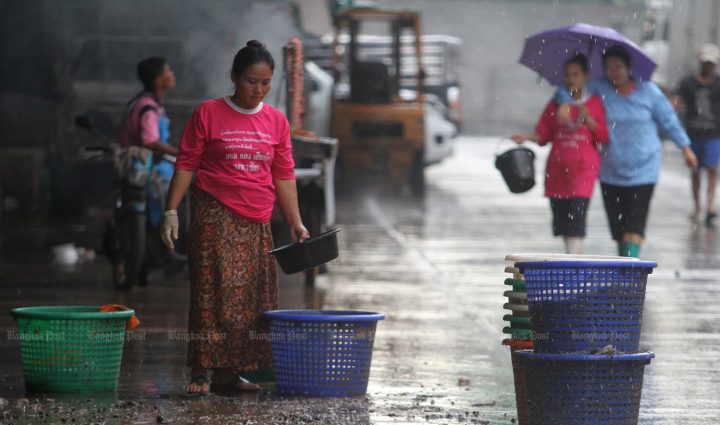Women and children in Southeast Asian countries particularly vulnerable, says UN
PUBLISHED : 2 Apr 2024 at 14:47

The International Labour Organization (ILO) in Thailand is stepping up its campaign to protect the rights of vulnerable migrant groups.
The project is part of a regional effort to protect the rights of female migrant workers and migrant children in Southeast Asia.
The goal is to promote decent work and reduce the vulnerability of those at risk by ensuring labour rights, preventing violence against women and children, human trafficking and migrant smuggling, according to the United Nations agency.
The ILO estimates there are 10.6 million migrants in Southeast Asia, of whom nearly half are women and 1.3 million are children.
Migrants, especially those in low-wage occupations, face many challenges including labour exploitation, human trafficking, violence and harassment.
Women migrants are also more likely to end up in the informal sector where they are offered temporary jobs and little to no social protection.
Children accompanying migrant workers face a high risk of abuse, exploitation and trafficking as well as inadequate access to child protection services.
The “Protect” project will be carried out by four UN agencies: the ILO, UN Women, UN Office on Drugs and Crime, and the United Nations Children’s Fund (Unicef).
They will work with stakeholders in four Southeast Asian countries — Cambodia, Indonesia, Malaysia and Thailand — to strengthen laws and policies, improve mechanisms to better protect target groups’ rights, and increase access to information and services.
The project, to run until the end of 2026, has a budget of US$15 million, to which the European Union has contributed $14.28 million.
Labour migration is a driver of economic and social development in both countries of origin and destination, said Chihoko Asada-Miyakawa, assistant director-general and regional director for Asia and the Pacific at the ILO in Bangkok.
When handled properly, it can benefit migrant workers, communities and employers alike.
“Migration policies and approaches need to be gender-responsive, more inclusive and in line with international labour standards if we are to provide the protection and access to decent work that migrants deserve, which is critical for social justice,” she added.

